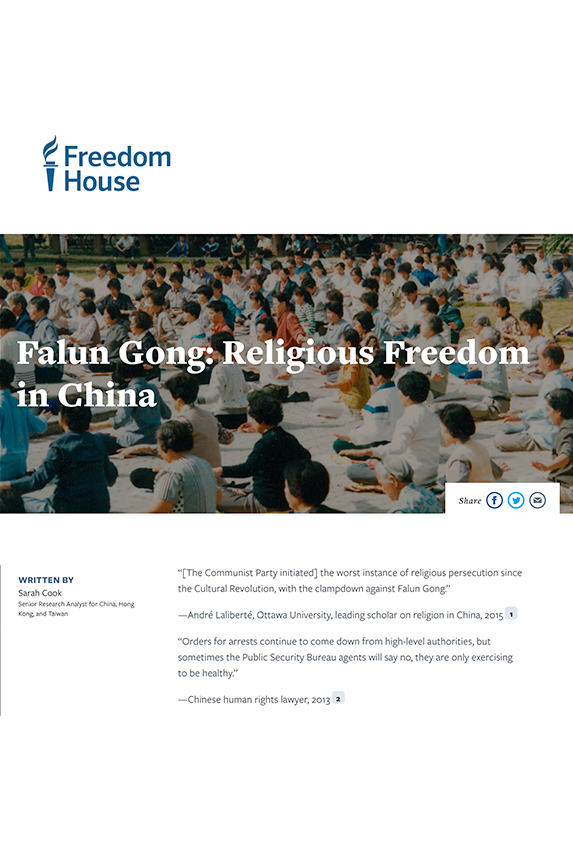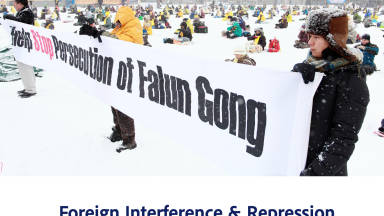Written by Sarah Cook
Senior Research Analyst for China, Hong Kong, and Taiwan
Key findings
- Survival: Despite a 17-year Chinese Communist Party (CCP) campaign to eradicate the spiritual group, millions of people in China continue to practice Falun Gong, including many individuals who took up the discipline after the repression began. This represents a striking failure of the CCP’s security apparatus.
- Ongoing large-scale persecution: Falun Gong practitioners across China are subject to widespread surveillance, arbitrary detention, imprisonment, and torture, and they are at a high risk of extrajudicial execution. Freedom House independently verified 933 cases of Falun Gong adherents sentenced to prison terms of up to 12 years between January 1, 2013, and June 1, 2016, often for exercising their right to freedom of expression in addition to freedom of religion. This is only a portion of those sentenced, and thousands more are believed to be held at various prisons and extralegal detention centers.
- Cracks in the crackdown: Despite the continued campaign, repression appears to have declined in practice in some locales. President Xi Jinping has offered no explicit indication of a plan to reverse the CCP’s policy toward Falun Gong. But the purge and imprisonment of former security czar Zhou Yongkang and other officials associated with the campaign as part of Xi’s anticorruption drive, together with Falun Gong adherents’ persistent efforts to educate and discourage police from persecuting them, have had an impact.
- Economic exploitation: The party-state invests hundreds of millions of dollars annually in the campaign to crush Falun Gong, while simultaneously engaging in exploitative and lucrative forms of abuse against practitioners, including extortion and prison labor. Available evidence suggests that forced extraction of organs from Falun Gong detainees for sale in transplant operations has occurred on a large scale and may be continuing.
- Response and resistance: Falun Gong practitioners have responded to the campaign against them with a variety of nonviolent tactics. They have especially focused on sharing information with police and the general public about the practice itself, the human rights violations committed against adherents, and other content aimed at countering state propaganda. In recent years, a growing number of non–Falun Gong practitioners in China—including human rights lawyers, family members, and neighbors—have joined these efforts.




